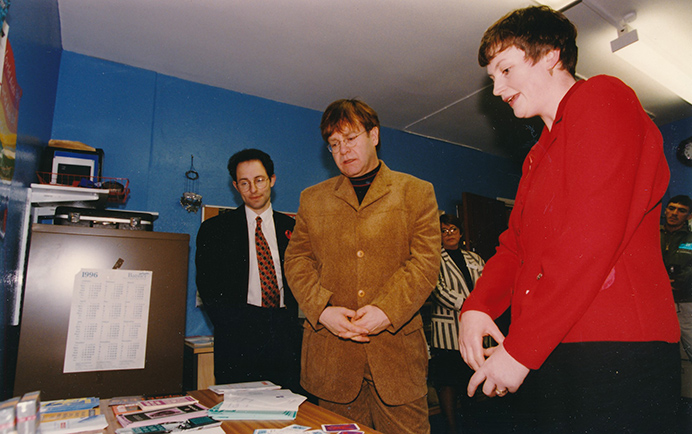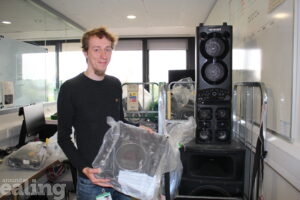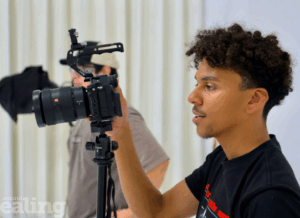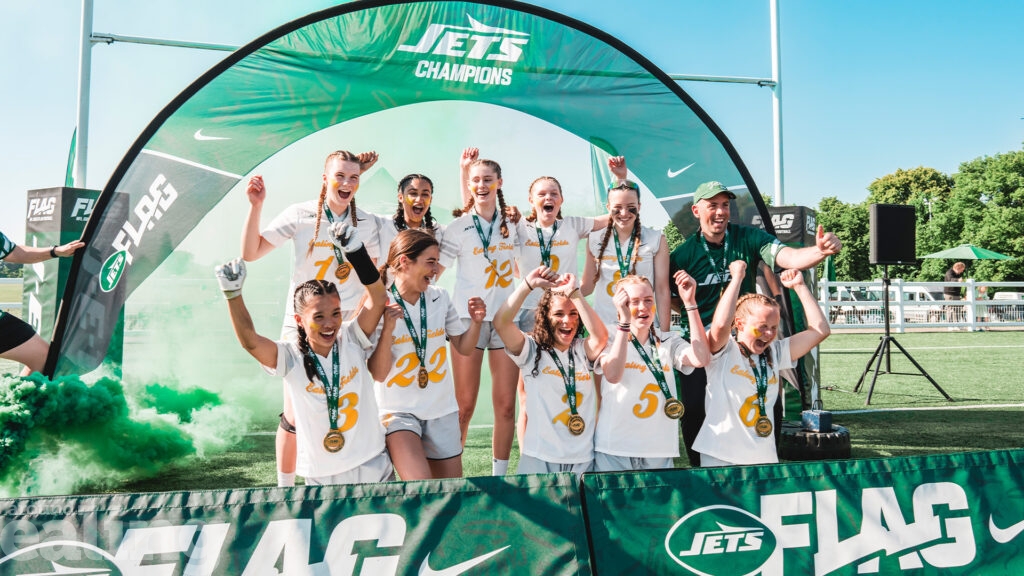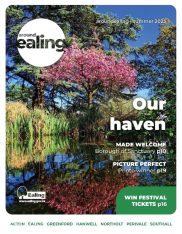February is LGBT+ History Month, celebrating the lives and experiences of lesbian, gay, bisexual and transgender people and promoting equality and diversity. Borough archivist Dr Jonathan Oates looked back at the local archives.
Although two London students founded Gay Liberation in 1970, very little is recorded about gay and lesbian people locally until the 1980s. That said, the local newspaper advertised a gay helpline in 1975.
There is no definite date when Ealing’s first gay club was founded but, in 1987, one had existed for some time, the Ealing Gay Association, and its chairman was Peter Knight.
Ealing’s first gay youth club was founded in 1987. It was called ELAGY (Ealing Lesbian and Gay Youth). Before then, LGBT+ young people tended to have to go to central London to find clubs to meet other people. ELAGY was founded by Robert Ashby, who had founded a similar club in Durham. Ealing club members were aged between 18 and 26. Young men in Southall and Greenford, especially those from among the Asian communities, showed a great deal of interest, while girls showed a lower level of interest. Teenagers could join without their parents’ consent. It was opposed by some members of the community, including the Ealing Parents Action Group and also some of the Sikh community.
In 1988 Ealing Council began to promote gay rights, in contrast to its attitude in 1979 when it banned gay magazines appearing in its libraries. The council published booklets and brochures and sometimes funded social events aimed at gay people. There was relevant sex education in schools. It argued that it was promoting equality not homosexuality as its opponents claimed.
The first known gay and lesbian march in Ealing took place in 1990. This was from Elthorne Park to Ealing Town Hall to protest against the unsolved murder of gay actor Michael Boothe which had occurred in the park. Well-known campaigner Peter Tatchell addressed the rally to say that the police investigation was inadequate and that gay people were not given the full protection of the law.
There was much controversy over the issue. Ealing North MP Harry Greenaway was opposed to the council spending money on what he saw as homosexuality being promoted in schools. The Rev. Michael Seward argued likewise. Greenford councillor the Rev. Neil Richardson spoke out against him. Likewise, fellow Acton councillor John Gallagher, chairman of Ealing Gay and Lesbian Working Party in 1986, was a prominent figure in the movement. He became mayor of Ealing in 2011, having been a councillor for 12 years.
There have been local examples of homophobia. In 1968 two men attacked another man because they thought he was gay. In 1980 there was talk about gay men forming vigilante groups to defend themselves against attacks. In 1989-1990 three gay men were killed in the borough by unknown assailants on separate occasions. Although the cases were reinvestigated a few years later, there was no positive result.
Inspirational music connections
Music star Dusty Springfield went to secondary school in Ealing, after her family moved to the borough, and she also began her music career in the late 1950s while still living here. In 2015, she was named by Equality Forum as one of their 31 Icons of the 2015 LGBT+ History Month. Another fellow global superstar, Freddie Mercury, from the band Queen, attended Ealing College in the 1960s. In 1996, pop star Elton John made a publicised visit to St Bernard’s Hospital (pictured above) to see how its drug treatment centre operated and, amongst others, he met Joan Mannion, a HIV counsellor. Elton grew up in neighbouring Harrow borough and made his earliest performances nearby.
